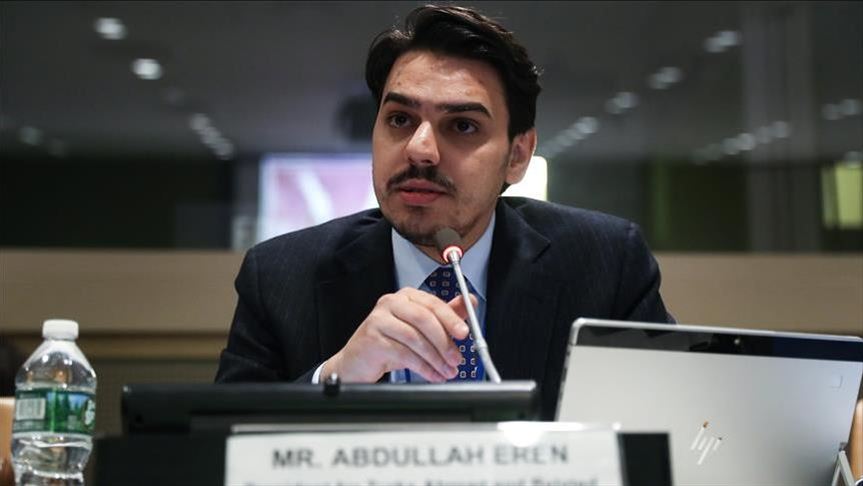
IZMIR, Turkey
Some 90% of Muslim pious endowment properties in Greece's Dodecanese islands have disappeared in recent years, said a Turkish official on Thursday.
Speaking at a symposium on the problems of the Turkish minority living on Greece's Dodecanese islands, Abdullah Eren, the head of Turkey’s Presidency of Turks and Related Communities Abroad (YTB), said the number of Muslim pious endowment or vakif properties has fallen dramatically.
“Ninety percent of the properties of vakifs in the Dodecanese islands have disappeared. There were around 400 vakif properties and now there are only 40,” he stressed.
Eren said Dodecanese Turks’ vakif properties have long been sold off, sometimes far below market value.
Greece’s Dodecanese islands are home to a Turkish-Muslim minority of around 6,000 people.
Eren also said in years past, few Dodecanese Turkish students enrolled in universities in Turkey through the Turkey scholarships program.
But this year, the scholarships were extended to the island students and their number will rise, he predicted.
Eren said they also organize cultural trips for the young Turks of the Dodecanese, and over 100 took part in a trip this year to visit historic and cultural sites of Turkey.
Also speaking at the symposium, Mustafa Kaymakci, head of the Rhodes, Kos, and Dodecanese Turks Culture and Solidarity Association, said until recent years there was a perception that Greece’s Western Thrace region was the only area of the country where Turks live.
Kaymakci said today, on the Greek islands of Rhodes and Kos (Istankoy), there are thousands of people who identify themselves as Turks and Muslim.
However, Greek authorities do not recognize the cultural identity of Turks living in the Dodecanese islands, as the islands were under Italian occupation when the 1923 Treaty of Lausanne was signed.
Kaymakci said the Turks of the Dodecanese face numerous problems over their right to education, protection of pious endowments (vakifs- waqfs), freedom of worship, and other rights.
‘Turks of Dodecanese can’t learn their mother tongue"
Kaymakci said in the 1970s the schools serving Turks on the Dodecanese were closed and Greece stopped calling them Turks, calling them Greek Muslims instead.
“Today, the children of Turks of Dodecanese are deprived of their right to learn their mother tongue,” he stressed.
Kaymakci said a process of rapid assimilation can be seen in their community.
“The Turks on Rhodes and Kos have come to the brink of extinction. If this assimilation policy is not stopped, in short order, we will cease to hear of the Turks in the Dodecanese,” he said.
Gosta Toft, vice president of the Federal Union of European Nationalities (FUEN), said he is also a minority member, from Denmark’s German minority.
“For us it is normal to have bilingual minority schools… which are financed by the Danish state,” he stressed, a right which the Turks of the Dodecanese are deprived of.
Toft said FUEN, founded in 1949 in Paris, is an umbrella group that unites more than 90 national minorities and language communities in 35 countries and it is the largest umbrella organization of Europe’s autochthonous (local) minorities.
FUEN has shown its steadfast solidarity with the Turkish minority in Greece in recent years, Toft said.
Toft said unfortunately, Greece “always” ignores resolutions about the rights of Turks in Greece and it is not responding to the minority’s demands.






